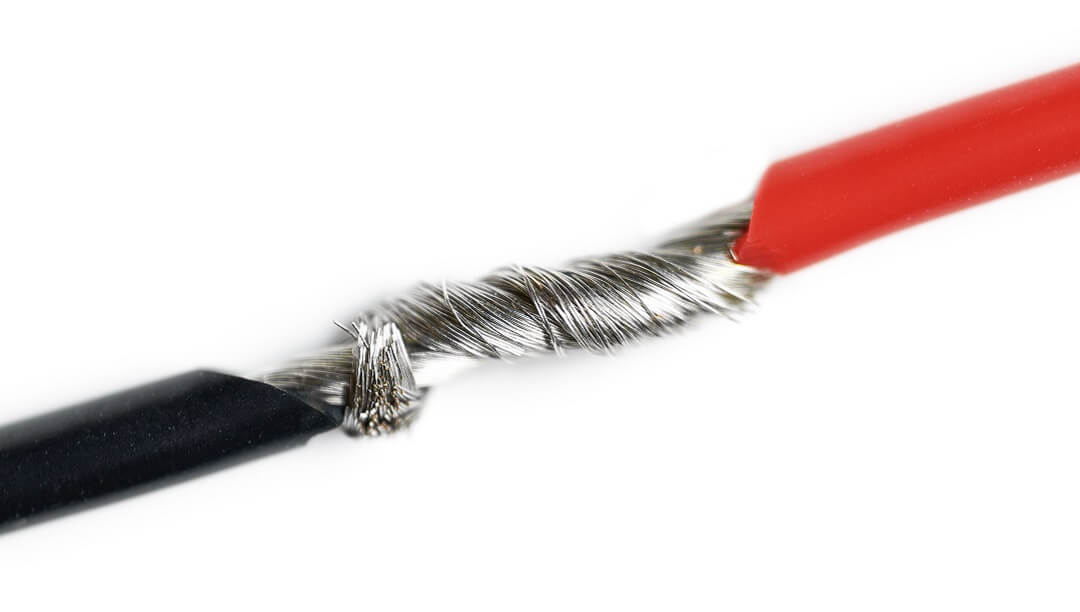If you are searching for your dream home, chances are you are looking at how many bedrooms and bathrooms the house has and not focusing on the wiring within the house. Unfortunately, if you are looking at homes built in the mid-1960s to mid-70s, the use of aluminum wiring throughout the home can be more important than how many bedrooms a home has.
Aluminum wiring poses a higher risk for electrical fires and, while buying a home with aluminum wiring is still possible, it can pose many risks to you and your family. Without changing or adapting the wiring, it can be very difficult to insure through homeowners’ insurance.
Key takeaways
- Aluminum wiring was commonly used in the mid-60s to mid-70s as an alternative to traditional copper wiring which was in shortage and increased in price during the Vietnam war.
- Even if you cannot visibly see aluminum wiring in your home, the time it was built, as well as other common warning signs can indicate that the home may have aluminum wiring.
- It is still possible to purchase a home with aluminum wiring, but you must be aware that insuring a home may be more difficult and may require rewiring.
Sellers should disclose the presence of aluminum wiring in a home.
Why is aluminum wiring dangerous?
When home builders and electricians built homes with aluminum wiring, they used the aluminum in the same manner as they did copper wire. Unfortunately, these wires do not conduct electricity in the same way and aluminum wiring is more posed to fail or cause a fire because of these differences. Aluminum wiring is more prone to creeping, direct damage, and oxidation.
Expansion and contraction
In comparison to copper, aluminum wiring is more prone to expansion and contraction as electricity moves through the wiring. This constant expansion and contraction make it more common for aluminum wiring to loosen at its connection points, creating loose connections that allow electrical arcing. When this occurs, the electrical current flows through the air, between the connections, and increases the risk of a house fire. In addition, aluminum wire is more sensitive to the vibrations that occur as an electrical current passes through. This vibration can also loosen wire connections.
Direct damage
Aluminum is a softer metal than its copper counterpart. If the wiring sustains any damage, such as crimping or breakage, hot spots in the wire are common, increasing the potential for overheating and causing a fire.
Oxidation
When copper wires undergo oxidation, they still have the ability to conduct electricity. Aluminum, on the other hand, becomes less conductive when it oxidizes, meaning that the flow of electricity becomes restricted. When this occurs, overheating in the wire can occur, increasing the risk of a potential fire.
How to determine if the house has aluminum wiring?
So how do you identify aluminum wiring in a home? While your home inspector is likely to identify aluminum wiring during an inspection, it can be beneficial to identify aluminum wiring before you get to the inspection stage. If you are looking at older homes built in the 60s or 70s, your risk of aluminum wiring is much higher and should prompt you to look further.
Ways to identify aluminum wiring include:
- Wiring that is the color of aluminum
- Wiring device binding terminals that are marked with CO/ALR
- The plastic wiring jacket is stamped with aluminum or AL
In addition to these direct identification factors, common warning signs can also be an indication of aluminum wires and fire hazard conditions. These can include:
- Warm-to-the-touch outlets, cover plates, or light switches
- Warm connection points
- Flickering lights and light fixtures
- Burning plastic smell
What to do if the house has aluminum wiring?
Whether you have identified aluminum wiring in a home you want to purchase, or the home inspection revealed aluminum wiring, there are some things you must consider as a home buyer.
To start, you want to have the home inspected by an experienced electrician. An inspection can rule out any immediate problems, as well as provide you with an estimate to replace all the wiring with copper or other alternative solutions, such as pigtailing, or attaching a segment of copper wire to the ends of the aluminum wire and reducing the risk of loose wires.
This pigtailing can include AlumiConn™ connectors or COPALUM connectors installed by licensed electricians and the recommended aluminum wire remedy by the U.S. Consumer Product Safety Commission.
Once you receive these quotes, you can use them to negotiate a price with the seller if you are still interested in purchasing the property.
Purchasing a house with aluminum wiring?
If you have had an electrician inspect the property, talked with the seller, and are comfortable with the aluminum wiring in place, for now, you can move forward with the home purchase. However, if you are looking to get a mortgage on the property, there are some things to consider. For example, aluminum wiring may require remedy before a property is approved for a government-backed loan, such as an FHA mortgage.
Getting hazard insurance
If you are looking at a conventional mortgage, aluminum wiring may make insurance companies less likely to issue a homeowner’s insurance policy. You will likely need to contact multiple insurance agencies to find those that will approve a policy and compare insurance premium prices. If it is approved, you are likely to have much higher premiums.
Remodeling the house
If you purchase a home with aluminum wiring, you should immediately consider a remedy. While a seller may say they have never had issues with the wiring in the home or an electrician says it looks safe currently, you may be tempted to simply do nothing. However, with aluminum wiring, there is always the potential for overheating and an increased fire risk. It is recommended that you rewire the entire property or take advantage of other solutions offered by the electrician as soon as possible to ensure your new home is safe for you and your family.
Buying a home with aluminum wiring can pose risks
Finding out that the home of your dreams has aluminum wiring can come as quite a shock. While the use of aluminum wiring in the home doesn’t mean you have to give up on your purchase, it does mean you have some things to consider.- Does your budget allow for wiring replacement or repair? Will the seller work with you to cover part of the rewiring costs?
- Can you get homeowner’s insurance on your property?
- Will your mortgage lender approve the home for your mortgage?












